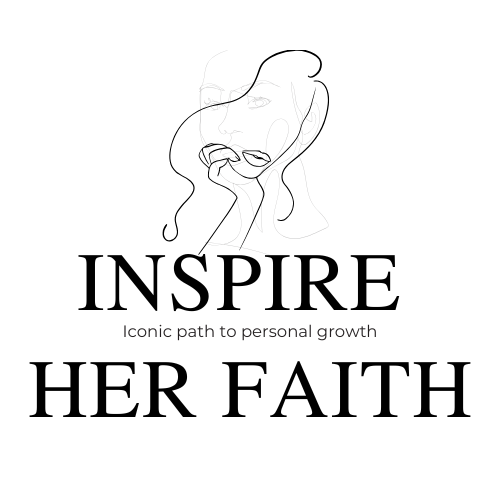In my late teenage years up until early 20s, I used to react fiercely to anyone attacking me with their harsh words. My instinct was to retaliate, to make them feel as miserable as they tried to make me feel. Back then, I struggled to manage my emotions and stay calm when I faced adversity. Though I’ve always been kind, continuous boundary crossing or heated debates could push me to a dark place.
Seeking Forgiveness
May Allah forgive all our shortcomings. With age and life experiences, I have learned to grow softer and more compassionate, even in the face of hurtful behavior. I’ve established healthy boundaries and respond with grace and respect. Not everyone will like or understand you, and that’s okay. I’ve accepted this with calm and noticed significant improvements in my manners and approach to life’s inconveniences.
Protecting My Peace
Nowadays, I worry less, talk less, and engage less with negativity. Protecting my peace and joy in this world has become a priority. I stay quieter, a transformation I didn’t think of but find refreshing. Seeing life with maturity is much better than before I healed. I avoid distractions unless I create them myself. A peaceful life is preferable to chaos, which is usually not a choice unless one is mentally unwell or going through tough times.
And the person who comes walking towards Me, towards him I come running
Tafsir Surah Al-An’am – 160
Faith in Allah
Allah (SWT) listens to our prayers, Duas, and late-night conversations when things are tough or even great. I involve Allah (SWT) in every aspect of my life, even in the smallest events. For example, a couple of weeks ago, I had a wisdom tooth extraction.
I was terrified, with anxiety peaking the night before. Despite my low tolerance for surgical procedures and pain, I turned to Allah (SWT) in prayer, Duá and late-night conversation, seeking calmness and relief from anxiety.
Experiencing Allah’s Mercy
Here are ten ways Allah (SWT) helped me during the time of my wisdom tooth extraction:
- He provided me with calm throughout the night.
- He kept me busy at work, distracting me from my worries.
- He placed calming individuals in my life.
- He guided me to an excellent clinic a week prior.
- He assigned a kind, experienced, and effective surgeon for the procedure.
- He included a fellow Muslim as the dental assistant in the room.
- He reminded me to say “Bismillah” before the procedure.
- He ensured the surgeon was attentive and the anesthetic effective.
- He gave me the courage to book the appointment through my brother.
- He healed an unnoticed infection, preventing future pain.
Gratitude
We often overlook Allah’s small mercies. We’re so engrossed in worldly matters that we forget to appreciate His blessings. A few years ago, I would have credited myself for handling the medical procedure. Now, I reflect and thank Allah for everything.
Acknowledging Allah’s Role
Whatever you do in this life, no matter how many gifts you are showered with, whether through hard work, or dedication, it was given to you by Allah (SWT). As Muslims, we thank Allah for even the smallest inconveniences or good news that come our way.
We acquire all habits through our experiences. You had to go through hardship to become strong, or you had to be tested by other people to seek knowledge and become intelligent. It all comes down to how you use your given gifts.
Allah (SWT) gives them to you for a reason. I pay close attention to life, follow the signs given by the Almighty, and work on not worrying while staying steadfast in my beliefs.
- Talent or Skill: Allah shows you mercy.
- Hardworking Nature: Allah grants you grace.
- Knowledge: Allah bestows His wisdom upon you.
- Courage and Strength: Allah tests you because He loves you or wants you to return to Him.
Everything we do is decreed by Allah’s will. While we have free will and may commit sins, Allah understands His creation and does not expect perfection.
Reacting to Criticism
Recently, I shared a heartfelt story on Instagram, receiving an angry reply about Allah (SWT). It made me angry and disappointed.
Controlling my emotions and staying rational is something I’m actively working on. Instead of reacting harshly, I chose to explain my faith with grace and firmness. Educating others about Islam with kindness and respect can be impactful.
As Muslims we cannot be too harsh on non-Muslims when it comes to their faith and what they believe, even if we disagree on our beliefs with them. We must treat everyone with utter respect and educate properly.
A Muslim person could be the reason someone picks up a book, the Quran or going on social media to learn more insight about Islam. It is every Muslims duty to educate properly with kindness, patience and respect.
Our Prophet Muhammad (SAW) taught and spread Islam in a predominantly non-confrontational manner. He paid close attention to the actions of those around him so that he could teach them properly.
While he often employed peaceful teaching methods, there were also moments where confrontation was inevitable, such as in the battles of Badr and Uhud. These instances reflect the complexity of his mission.
He was chosen by Allah (SWT) to educate his followers and all of humanity, erasing their ignorance with knowledge. We can continue to spread the message by studying how the Prophet (SAW) taught and applying his methods in our own lives. For instance, his interpersonal communication techniques remain relevant in modern contexts.
Muslim.sg has written an excellent article about his teachings, which you can read by clicking here. This article provides valuable insights into specific aspects of his teachings, offering a deeper understanding of how we can emulate his methods today.
As for those who struggle in Our cause, We will surely guide them along Our Way. And Allah is certainly with the good-doers
Surah Al-´Ankabut: Quran 29:69
Finding Support
In times of attack or self-healing, remember there’s hope. Hope is the longing for a positive outcome when your mind is vulnerable. In moments of trauma, turn to Allah (SWT) and seek support within the community, like on Reddit.
Fellow Muslims can provide incredible support. There’s a saying, “Allah will put you back together right in front of the people who broke you.” Trust in Him. When repeatedly hurt by the same people, miracles can happen to you by Allah’s will, it is however conditioned by your faith and practices.
Conclusion
Transitioning from reacting with anger to responding with grace highlights personal growth and the power of faith. Life’s experiences have taught me the value of setting healthy boundaries and protecting my peace. Recognizing Allah’s (SWT) small mercies—like calmness in anxiety and supportive people—deepens my gratitude and strengthens my spiritual journey.
When faced with adversity, patience and understanding reflect the true essence of Islam. Educating others with kindness, even when our beliefs are challenged, can foster understanding and respect. Community support, whether personal or online, provides comfort and reassurance during tough times.
Faith extends beyond rituals; it involves integrating Allah (SWT) into every aspect of our lives. By turning to Him for guidance and expressing gratitude, we strengthen our relationship with Him. Embracing life’s trials with patience and unwavering faith helps us navigate challenges with a calm heart.
Ultimately, true strength lies in responding with grace rather than anger. By protecting our peace and seeking Allah’s guidance, we pave the way for a fulfilling and serene life. Let us strive to be the best versions of ourselves, for the sake of Allah (SWT) and our inner peace.
Sources: Quran.com , Muslim.sg
Suggested reading: Inspiring Muslim Girls: Self-Development Strategies from an Islamic Perspective



